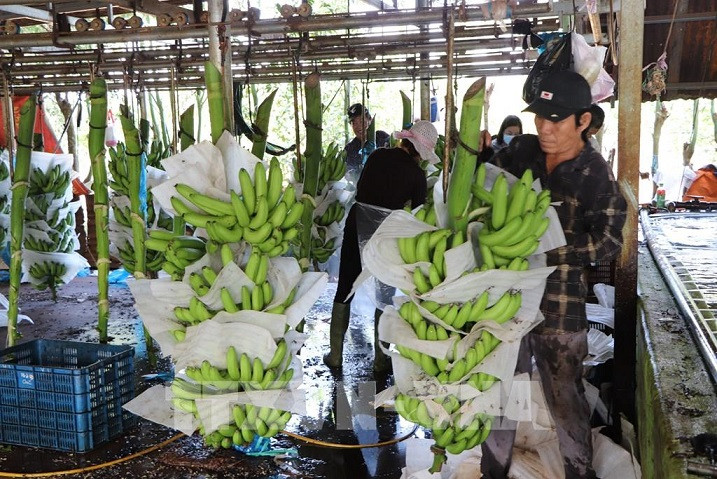
Thailand, known for its robust agricultural sector, has nearly doubled its expenditure on Vietnamese fruits and vegetables in the first half of this year. This marks Thailand as the fastest-growing export market for Vietnam's produce sector.
According to preliminary statistics from the General Department of Customs, by mid-July 2024, Vietnam's fruit and vegetable exports had reached nearly $3.57 billion. This makes fruits and vegetables the third largest export sector in agriculture, following forestry products and seafood.
China remains the largest market for Vietnamese fruits and vegetables, accounting for 64.9% of total export value with $2.16 billion, a 22% increase from the same period last year.
Following China are South Korea and the United States, with export values of $164 million and over $157 million, respectively. These markets have shown impressive growth rates of 54.6% and 33.5% compared to the same period last year.
Notably, among the top 10 export markets for Vietnamese fruits and vegetables, Thailand has recorded the highest growth, with an increase of 95.5% compared to the same period in 2023.
In Southeast Asia, Thailand is a strong competitor in the production and export of fruits and vegetables. It also directly competes with Vietnam in exporting to the Chinese market. However, in the first half of this year, Thailand spent $97 million on Vietnamese fruits and vegetables. This indicates the increasing appeal of Vietnamese products not only in traditional markets but also in competitive ones.
The Vietnam Fruit and Vegetable Association reports that Thailand primarily imports durian from Vietnam. In the early months of this year, Thailand became the second-largest export market for Vietnamese durian, following China.
The outlook for Vietnam's fruit and vegetable exports in the latter half of the year remains positive, thanks to seasonal factors and abundant supply. As global demand continues to rise, Vietnam's export revenue in this sector is expected to reach or exceed $7 billion.
Tam An